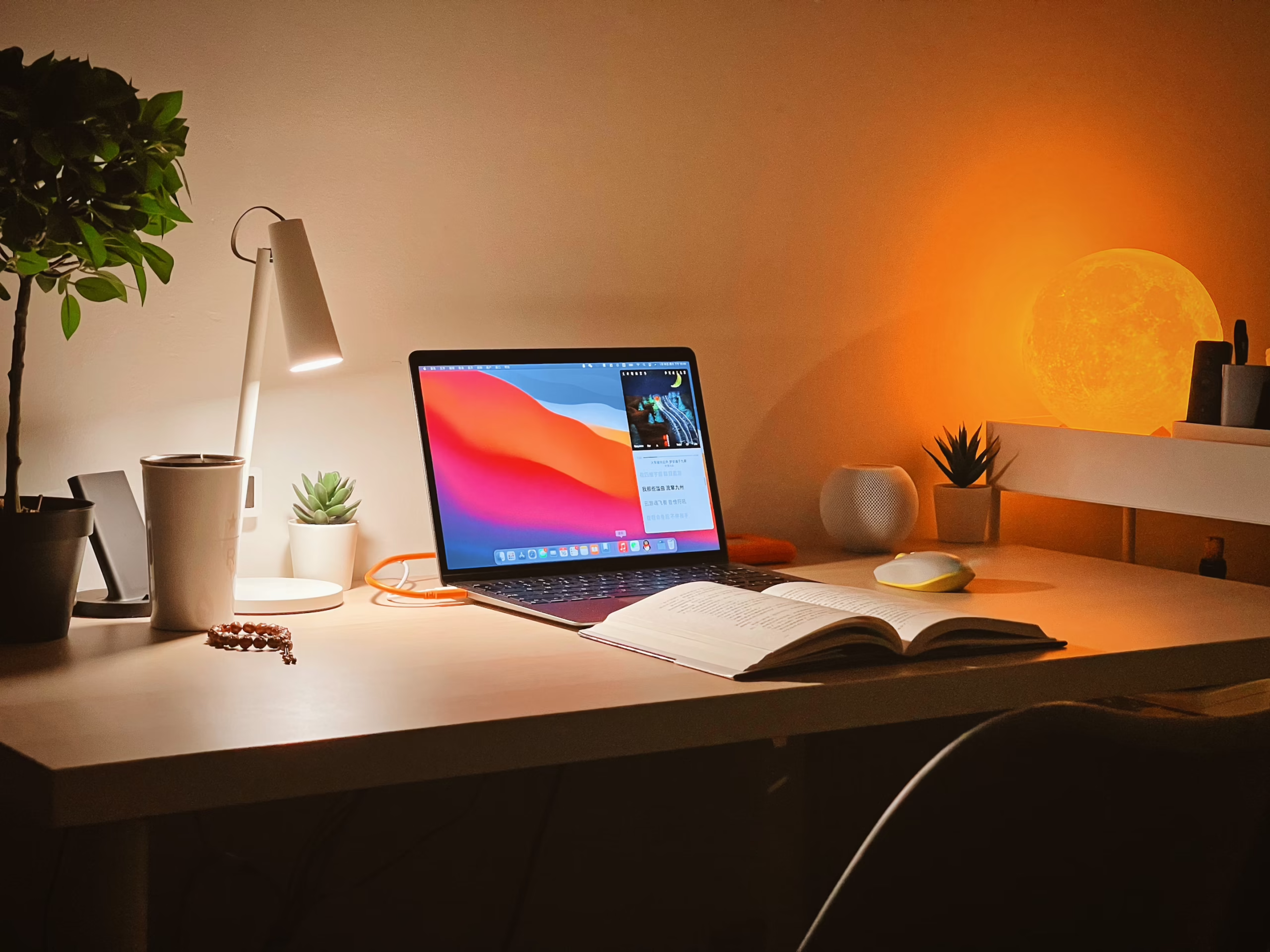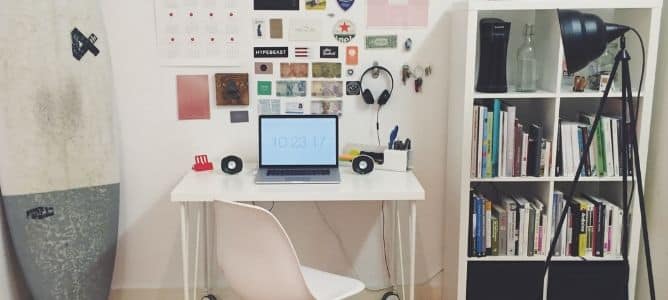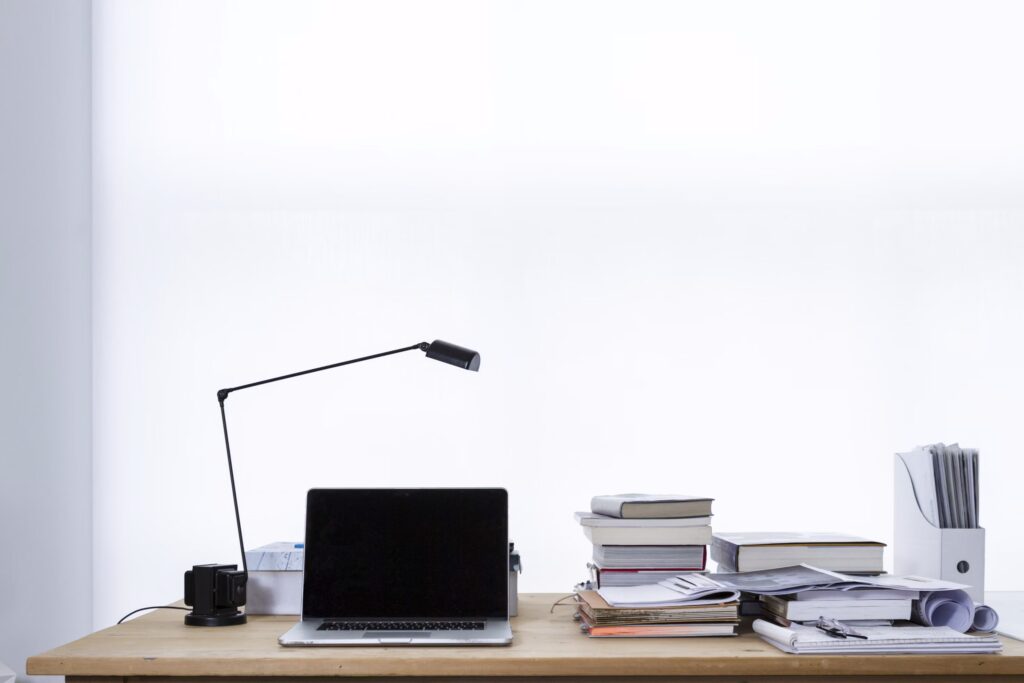Why Your Study Space Matters
Your study space is more than just a desk and chair—it’s where you spend hours working on assignments, preparing for exams, and trying to stay productive. A cluttered or uncomfortable space can make studying feel overwhelming, while an aesthetic space can keep you focused and motivated.
The key is finding the perfect balance between style and functionality. You want a place that looks good, feels comfortable, and helps you stay organized.
For students juggling multiple responsibilities, having an organized study space isn’t just about aesthetics—it’s about making learning easier. And if you ever feel like you’re drowning in assignments, you can always write papers for money to lighten your workload and free up some time for yourself.

Study Room Ideas for Maximum Productivity
Declutter Before You Decorate
Before adding decorations, make sure your workspace is clutter-free. A messy desk can make it harder to concentrate, so start by getting rid of anything you don’t need. Use storage bins, shelves, and drawer organizers to keep your essentials in place.
A good organization tip is to keep only the items you use daily within reach. Everything else can go into labeled storage containers. This not only frees up space but also makes your desk feel more inviting.
Use Vertical Space for Extra Storage
If your desk is small, take advantage of vertical storage. Wall-mounted shelves, pegboards, and hanging organizers can keep books, supplies, and decor off your desk but still within reach. This is especially useful for small dorm rooms or shared spaces where every inch counts.
Drawer Organizers Keep Supplies in Check
Pens, highlighters, sticky notes—these small items tend to pile up and create clutter. Use drawer organizers to separate different categories of supplies. This makes it easy to find what you need without digging through a messy drawer. Good study tips organization: starts with having a place for everything.
Creating an Aesthetic Study Space That Inspires You
Choose a Color Scheme That Helps You Focus
Colors affect mood and concentration. If you want to stay calm and focused, go for neutral colors like white, beige, or light gray. If you need energy and motivation, try accents of blue, green, or yellow.
Add Soft Lighting for Comfort
Bright fluorescent lights can be harsh on the eyes, making it harder to focus. Instead, opt for warm LED desk lamps or string lights to create a comfortable and inviting atmosphere. If you’re working late, soft lighting can help prevent eye strain and headaches.
Keep It Minimal but Personal
A well-designed study space doesn’t have to be filled with decorations. Keep it simple but add a few personal touches—like framed photos, motivational quotes, or small plants. These details make your study area feel more like your own while keeping distractions to a minimum.
Keeping Everything in Order

Use a Planner or Digital Calendar
One of the best organization tips for school is to keep a planner or digital calendar. Whether you prefer a physical planner or apps like Google Calendar, planning out your deadlines and tasks reduces stress and keeps you on track.
Color-coding tasks by subject or priority can make your planner even more effective. If you prefer digital tools, apps like Notion or Trello can help you stay on top of assignments in an organized way.
Set Up a Filing System for Notes and Papers
Instead of letting papers pile up, create a simple filing system. Use labeled folders, binders, or cloud storage to organize class notes, research papers, and assignments. Keeping your materials organized saves time when you need to review for exams or work on a big project.
Have a Weekly Reset Routine
At the end of each week, take 10-15 minutes to clean and reorganize your study area. Throw away unnecessary papers, restock your supplies, and reset your desk for the next week. Study room organization ideas work best when they’re maintained regularly!
Organization Ideas for Students in Small Spaces
Multi-Use Furniture Saves Space
If you have a small dorm or apartment, multi-functional furniture can be a game changer as one of the best organization ideas for students. Desks with built-in storage, foldable chairs, and beds with drawers underneath help maximize space without adding clutter.
Hanging Organizers Keep Things Off the Floor
Use over-the-door organizers, wall hooks, and magnetic boards to keep small items off the floor. Hanging storage is a simple yet effective way to make the most of a compact study space.
Keep Wires and Cables Organized
Messy wires can make even the most aesthetic study space look chaotic. Use cable organizers, zip ties, or cord clips to keep them tangle-free and hidden behind your desk.
Organization Tips: Managing Your Time and Space
Stick to a Study Routine
A well-organized space is only helpful if you have good study habits. Try setting a consistent study routine, whether it’s studying at the same time each day or using the Pomodoro Technique. Having a structured plan helps you stay productive without feeling overwhelmed.
Keep Essential Items Within Reach
Nothing disrupts focus like constantly searching for supplies. Keep essentials like pens, notebooks, and chargers within arm’s reach so you don’t waste time getting up and looking for them. Study organization is about making things easier and more efficient.
Use Sticky Notes for Quick Reminders
If you’re a visual learner, sticky notes can be a great way to keep track of important reminders. Place them on your desk, wall, or planner to jog your memory about deadlines, exams, and upcoming tasks.
Final Thoughts
A well-organized study space isn’t just about looking good—it’s about creating an environment that helps you stay focused, motivated, and productive. Whether you’re into minimalist setups or colorful, aesthetic study spaces, small changes can make a huge difference in your productivity.
From study organization ideas to organization tips for students, finding a system that works for you will make studying easier and less stressful. So take some time to personalize your space and turn it into a place where you actually enjoy working. After all, when your space feels right, studying doesn’t feel as much like a chore!

